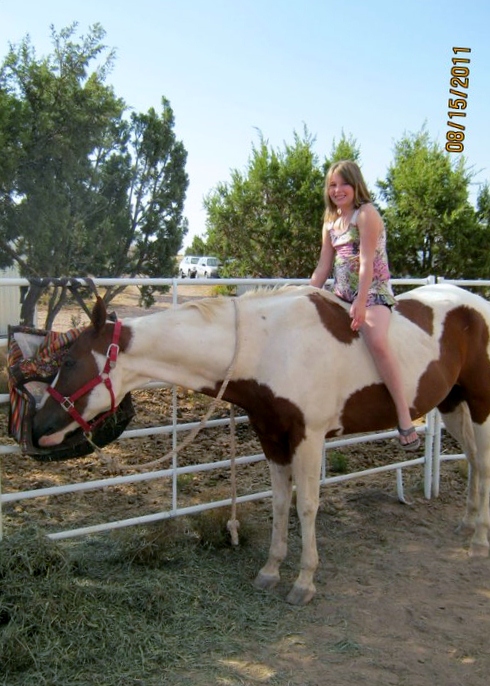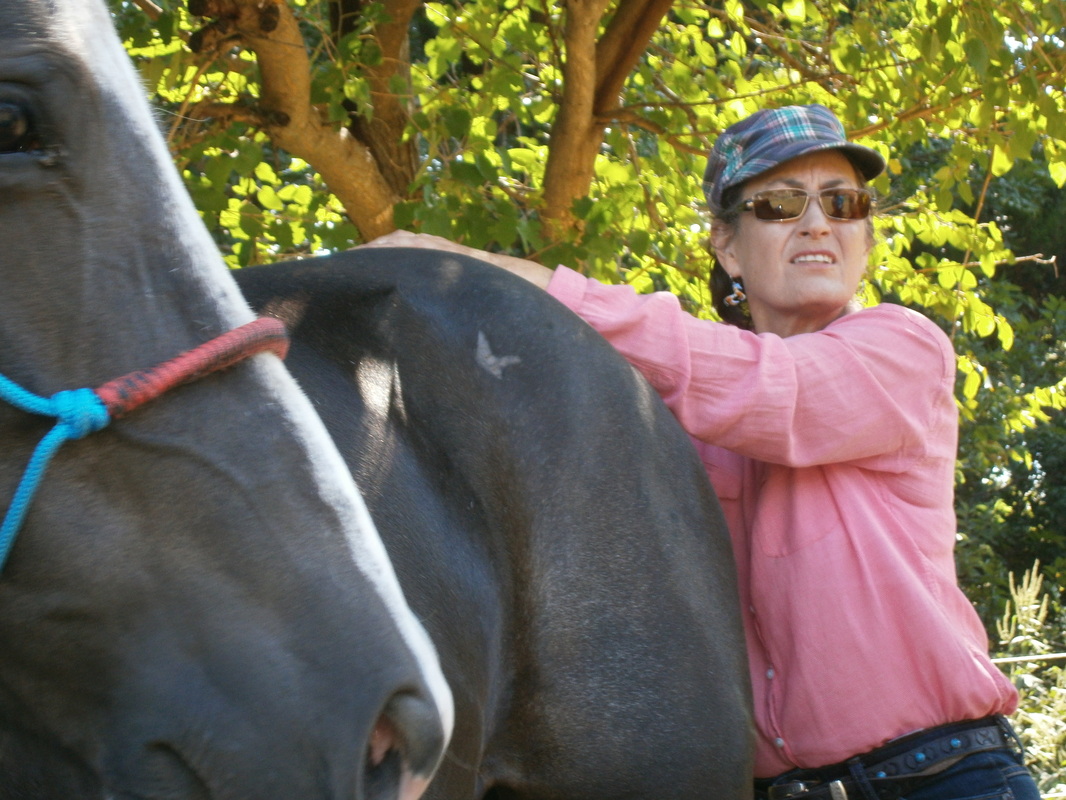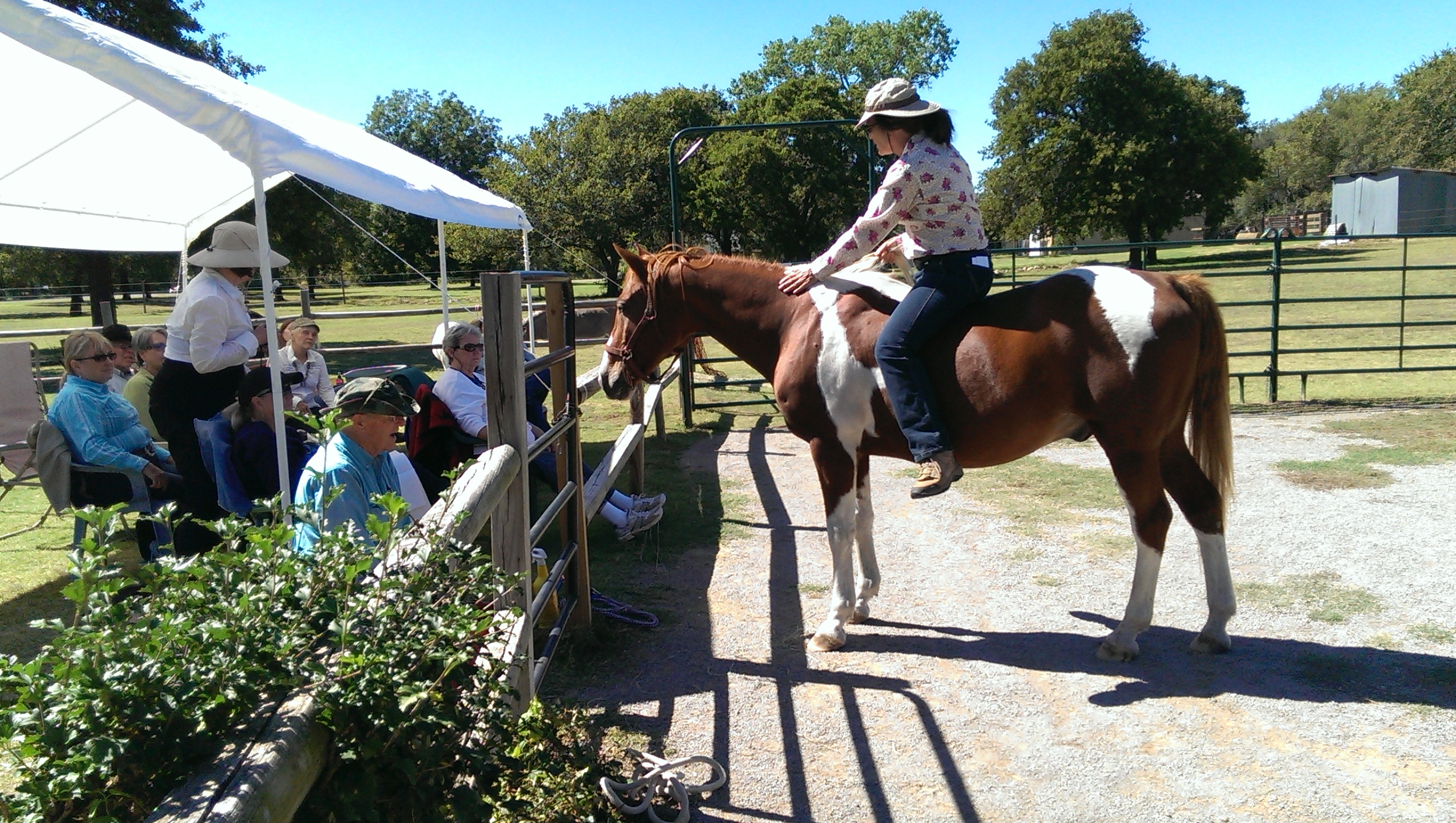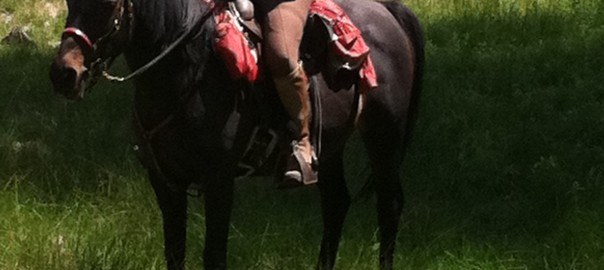Most people who have been around horses for a long while have suffered injuries. These injuries –unless treated deeply, and I mean with bodywork after the stitches or surgeries have healed, may continue to cause restrictions both in the physical body and the emotional and psychic bodies.

People who don’t hang out around horses have similar things happen to them, but the incidence of injury is very high with horse people. There is a highly emotional component to the injuries that isn’t like being in any other kind of accident, because often, they don’t expect an animal they are so attached to to hurt them. This impacts their work with horses. Many people get injured and then think they will just continue on the same way. They don’t realize they might have some parts of themselves “asleep” or not activated properly within their central nervous systems. Some people are left with balance issues. This is not to say horse people are lacking in some way; it is only to say that horse people are very brave and adventurous, but must also have heightened body awareness because of what they encounter in life with horses. And also because the horse knows that something is not the same in the human’s body after an accident.

As a bodyworker, I treat both humans and horses. A concussion, for example, can seem like a relatively simple thing. You get the doctor’s okay after a while and are given a clean bill of health. A concussion is not so simple. The cranial bones do have movement, and when a concussion occurs they can get stuck in uncomfortable and ineffectual patterns. Concussions can often display symptoms a year or more later, depending upon their severity. An MRI or Catscan can’t show everything, but can show a lot of critical damage if there is any, so you should have one.
A broken limb, for example, a shoulder, which encompasses the humerus, the clavicle and the shoulder blade, and can be in any of those places, can be painful years later. If bones have to be operated on, the surgeon will say the operation was a success, go to PT, etc., which only lasts six weeks usually (because of insurance coverage). After that you’re pronounced “healed” and you’re on your own, no matter how much pain you may still have. Good range of motion may take some time to achieve. The loss of comfort in any part of the body will create a compensation pattern in the body that then sets up resistances.
We see resistances in our horses and wonder why they are there. Many of them are there because of injuries just like they happen to us. They could be the result of the way we ride and interact with the horse, because of the resistances we have accumulated in our own bodies. Even when we aren’t in the saddle, our horses are aware of the resistances in our bodies.

I was noticing one day, while riding my mare that she had lumbar pain and I thought it was because my riding was bringing up resistances on my right side, which was exactly where her pain was. I did some bodywork on her afterwards. So the next day when I rode her, I was more conscious, and also noticed her right rib cage was involved. So when turning to the right I quietly put my leg on her right side, just as reminder, not pressure, to help her turn. I also became conscious both days of my dropping my solar plexus and my shoulder, caving in on the right into a turn, which was really jamming her up. No wonder! Poor horse! She had my body blocking her at the same time her ribs were jamming up.

Since I have had two significant injuries on my right side, I have to keep my consciousness in the right side of my body and not let it just respond in a contracted posture. Fortunately it’s part of my profession to notice physical things, and I notice them both in myself and in my horse. If I work with a riding instructor, it helps to have this knowledge pointed out, too.
I really feel that horses want to help us with some of this stuff, and that we can help them with areas like not falling on the forehand, bending, softening, posture, just by building awareness in our own bodies.
Sometimes the restrictions are in the horse’s body, and it’s up to us or a bodywork professional to figure out what is going on and if the rider’s riding is a catalyst for setting up or prolonging the condition.
Our physical, emotional and psychic health is tied into that of our horses, even if we aren’t on their backs. By virtue of being horse people, this is the case. We have a unique viewpoint that a dear therapist friend of mine teases me about whenever I see him: Who else would we allow to dump us on the ground and step on our foot or whomp us with a 40 pound head? And then we turn around and say: “it’s not the horse’s fault.”
I work with people in both acute and chronic stages of injury. If I get to work on people in the acute stage, I can work alongside the physical therapist in bringing awareness back into the body, in a different way than PT works. By working on the acute stage, I can open up neural pathways more quickly and set up a climate in which the body can begin to heal faster.
Once the client is healthy enough to sit on a horse again, provided the horse is a safe mount, I follow up with work on the horse, and the rider, on the ground and with the rider in the saddle. These mounted sessions do wonders to reconnect the pair and to tease out the places where they are interacting in an inefficient manner.
The trauma buried in the body from these accidents can take awhile to unwind and clear. It’s natural to become more cautious after a bad fall, but sometimes that caution translates to paralyzing fear that can make the person or horse dysfunctional. Too many avenues, or neural pathways, have been shut down. No way, I’m not going there. Sadly, there are cases where the person should never get on a horse again.
But when it’s your goal to get on again, or at least resume your relationship with your horses, and to be healthy in your body and mind, then look at bodywork as a path to that health. Beyond the stitches, beyond the surgery. I like to rephrase that saying, “the operation was a success, but the patient died,” to “the operation was a success, but the patient is still in pain.” That is more frequently the case. The pain can be managed, with consistent, gentle reminders that it can be intact, that there is a way for all the parts to have a conversation.
This conversation can extend to the horse’s body as well, so that the bodywork can help the horse with her own restrictions and reduce pain, so she can return to better functionality.
*****
(copyright: Susan Smith, OrthoHorse)
Services: Bodywork: (Ortho-Bionomy for people, Equine Ortho-Bionomy): private sessions, tutorials, phone consultations, Horse & Rider sessions, distance healing communication and gift certificates
Liberty Coaching: clinics, mini-clinics, workshops, private and semi-private sessions, tutorials, consultations: by appointment: 505.501.2478 or emailing susansmith@orthohorse.info Scheduling now. Contact me for details.
I’m now putting together the 2015 Clinic Calendar. Let me know if you want to do a clinic at your location. Prices will vary according to location.
December 13-14 I will be in DeLand, Florida teaching a Weekend Liberty Clinic. One spot is available, so please register asap if you want to come! An OrthoHorse Tutorial as well as private lessons and sessions will be offered on Friday, December 12th (priced separately from the clinic)
Book your spot today! Cost: $350
Who will benefit from this work?
All horses and humans, but specifically:
- Horses who have not responded to traditional natural horsesmanship
- Horses who have been frightened, abused and in other ways traumatized
- Horses who may be aggressive or too passive in their herd situations
- Horses who have problems with humans
- All humans who may be puzzled about relationship with horses and want to deepen their connection.
January 27-March 10, 2015 – Horses at Liberty Online Advanced will continue the instruction for those students who have taken an introductory online or in-person clinic from me.
The work builds on what has been taught in the introductory course with refining movements, body language, knowing what and when to ask for change, celebrating the horse’s gifts of engagement. Cost: $311
Payment for the Advanced Online can be made by check, PayPal or credit card. A PayPal button for each of those events is available on the home page of my website, http://www.orthohorse.info
Susan is a member of the Independent Liberty Trainers Network. libertytrainersnetwork.com/




I appreciate this advice, Susan! Almost everyone who’s involved with horses can/should use your suggestions!
Ruella Yates
Liberty Foundations
Spirit Horse Ranch
Thanks, Ruella. I’m hopeful that increasing awareness in this area will help decrease equine related accidents!